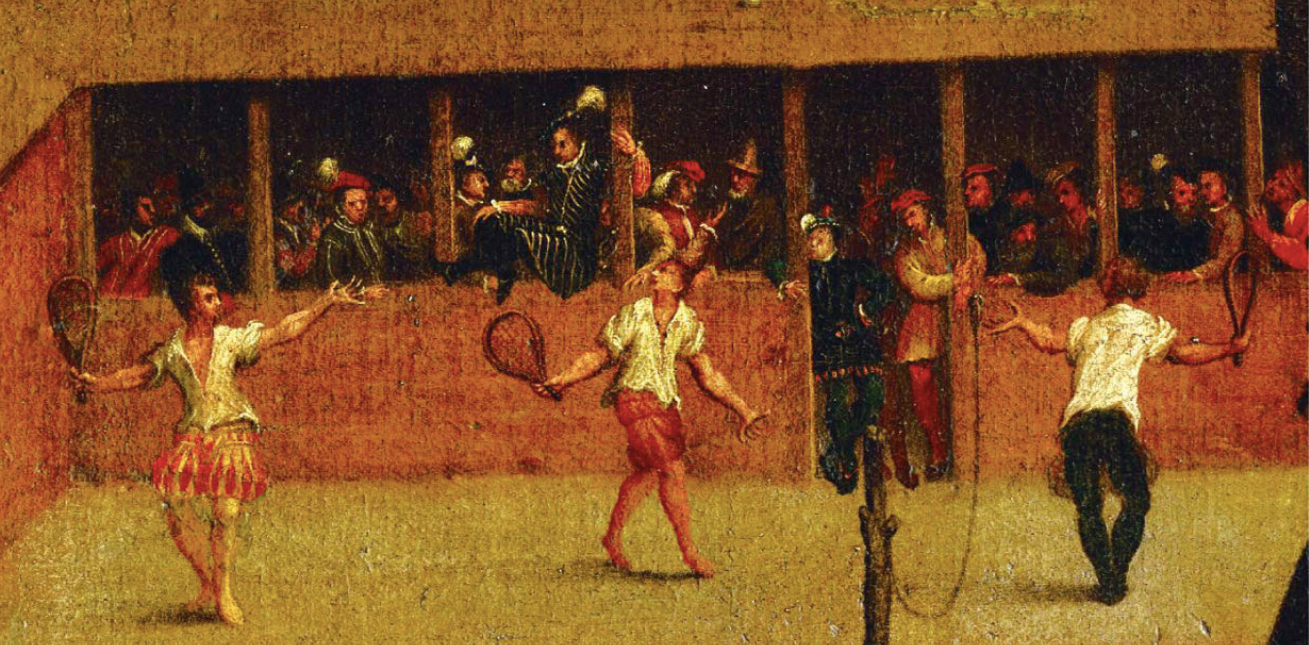
Sudden death: A book with ups and downs, like a tennis match
"Sudden death", from Mexican writer Álvaro Enrigue, is a novel on how the back-and-forth of history, from one side to the other end of the court, history, and…
The back cover of a book, like movie trailers and television commercials, are often misleading. If you come across one that reads: "'Muerte súbita' uses all the weapons of literary writing to draw a moment in the history of the world that is so dazzling and atrocious that it can only be represented by the most venerable and abused of technologies, the device whose golden rule is that it has no rules: Your Majesty the novel. And this is a truly majestic novel, of enormous ambition and great literary quality"... one must be wary.
However, as sometimes happens with trailers and commercials, there are exceptions where so much is true — cases where the waters break and it is possible to meet a noble work of art.
Now, that said, to describe exactly what it is about is very difficult. It discusses a huge part of the 16th century in Spain, Italy, France and England and counters the conquest of Mexico and all the riches (metallic and cultural) that left America for Europe.

The book begins with a tennis match that is held throughout the book between Michelangelo Merisi da Caravaggio, the Italian painter who invented the wonder of chiaroscuro and changed the history of art, and Francisco de Quevedo y Villegas, one of the greatest scribes of Spanish poetry, who left us both the most painful love verses (“su cuerpo dejará, no su cuidado;/ serán cenizas, mas tendrá sentido; polvo serán, mas polvo enamorado”) and the most mordant and misogynistic of mockery verses (“Sabed, vecinas,/ que mujeres y gallinas/ todas ponemos:/ unas cuernos y otras huevos”.)
RELATED CONTENT
From what is recorded in Quevedo's historical gossip and in the many legal proceedings that were opened against Caravaggio, both were drunkards and brawlers in addition to great artists. Caravaggio, at least, was also a superb tennis player, to the surprise of all of us who associate the sport with the whiteness of Wimbledon and not the filth of Counter-Reformation Europe.
While Caravaggio and Quevedo serve, defend and score points and insults to each other, Enrigue takes the reader through the history of Italy, Spain and Mexico. Little by little, we see how this pair of vandals went down in history with the honorary titles of painter and poet before the narrative opens the panorama. We see Pope Pius IV and Cardinals Borromeo and Montalto sowing Europe with fires, the Maliche sullying her world-changing clitoris and Hernán Cortés, "patron saint of the dissatisfied, the resentful, those who had everything and spoiled it" winning an impossible battle, thinking it was only the first one and sinking "into his own shit with his sword held up high."
This description is frantic because the novel is a vortex. So much so, that towards the end of the book, when those of us who committed ourselves to the text begin dreading its ending, Enrigue opens the confessional:
"I don't know, as I write it, what this book is about. What does it tell. It's not exactly about a tennis match. Nor is it a book about the slow and mysterious integration of America into what we obscenely call 'the Western world' - for Americans, Europe is the East. Maybe it is a book that is only about how this book could be told, maybe all books are only about that. A book with ups and downs, like a game of tennis. [...] I don't know what this book is about. I know I wrote it in rage because the bad guys always win. Maybe all books are written only because the bad guys play to their advantage and that's unbearable."
The merits of this novel by Álvaro Enrigue are plenty, so many that it won him the Herralde Novel Prize in 2013 –one of the greatest awards that the Spanish language has today. But the greatest of all is to manage to build that strange, dirty, and dizzying world, for the first time round as a tennis ball, and to keep it standing, even if it's just so we can see how it falls apart, sunk in the greed of the powerful and the loneliness of the poor.











LEAVE A COMMENT:
Join the discussion! Leave a comment.